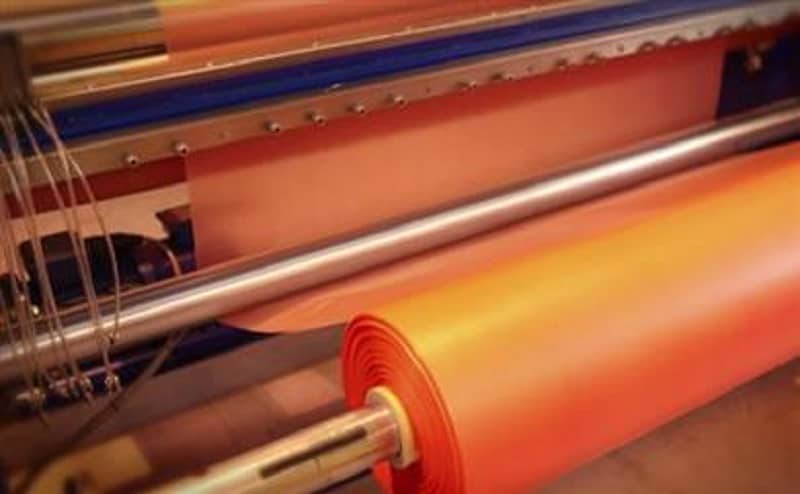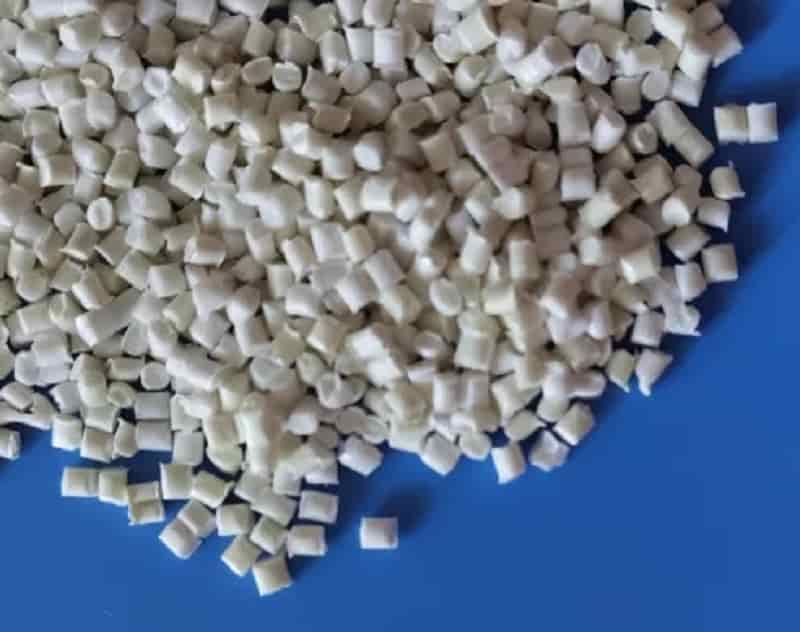Enzymatic-depolymerization – Automotive 30-04-2022 - Arhive
Enzymatic-depolymerization – Automotive
-Solvay and Carbios demonstrate enzymatic depolymerization in PET/PVDC barrier film
Unique recycling technology helps the industry close the loop on PVDC-coated PET films
Solvay and Carbios successfully demonstrated that multi-layer PET1 films coated with Diofan® PVDC2 high-barrier polymer are fully compatible for enzymatic depolymerization – Carbios’ innovative recycling process. Results show that the PET is fully depolymerized, whereas the PVDC remains intact.
Carbios is the first company to have developed enzymatic processes dedicated to the end-of-life of plastics and fibers. The collaboration builds upon the results of an earlier proof of concept by Solvay which has confirmed that waste from packaging or other applications using bi-oriented PVDC multi-layer film can efficiently be recycled without compromising the outstanding barrier performance of the polymer. It aligns with Solvay One Planet’s sustainability ambition to preserve resources and contribute to safer, cleaner and more sustainable products. Enzymatic-depolymerization – Automotive
“OEMs and brand owners are under tremendous pressure to increase the sustainability of their products,” says Guruprasad Sivakumar, Head of Marketing for Consumer, Healthcare and Environment at Solvay. “While PVDC has long been used for coating flexible PET films e.g. in food packaging, where it delivers impressive barrier properties, these multi-layer structures have been challenged regarding their recyclability. This is where Carbios’ unique recycling technology comes as a real game changer. By providing a feasible and sustainable end-of-life management solution, it can help the industry close the loop on PVDC-coated PET films and extend the value proposition of our high-barrier specialty polymers to further markets, such as the packaging of pharmaceutical products.”
The patented recycling process developed by Carbios works with specific enzymes to break down the PET molecules back into their constituent monomers. The technology uses moderate temperatures, which is ideal in the presence of PVDC, and can be applied to recycle post-industrial as well as post-consumer waste. The resulting monomers could be purified for reuse in the production of a new PET polymer of the same quality as those derived from virgin petrochemical feedstock. Notably, the joint study by Solvay and Carbios has demonstrated that PVDC does not jeopardize the depolymerization of PET. Enzymatic-depolymerization – Automotive

-Cheap polymer imports from China, threatens indian producers’ price sustainability
Indian traders and consumers have intensified their imports of polymers from China in a bid to take advantage of the price fall there on account of falling demand due to domestic factory closures in the pandemic-induced lockdowns.
Informed sources said that a huge quantity of polypropylene (PP) and polyvinyl chloride (PVC) have started coming in from China at prices which are 4-6 percent lower than the current prevailing rates in India.
In the last few weeks, the coronavirus situation in China has reportedly worsened. In China’s most populous city, Shanghai, deaths have resulted in a strict lockdown and amid rising fears of a further escalation, local authorities in Shanghai and other major business cities have started to conduct three rounds of Covid testing.
With this, the Chinese authorities have imposed strict lockdowns across major cities including Shanghai resulting in various factories undergoing temporary closures and production cuts. Thousands of small and medium-size polymer processing units are said to have shut down which eventually has resulted in a spurt in supply of PP and PVC in China. With primary producers’ storage facilities running full, they are offering price discounts to Indian importers in an attempt to free up space in their storage tanks. Enzymatic-depolymerization – Automotive
According to trade sources, the import of PP and PVC works out to be cheaper by 4-6 percent even with the ruling high freight rates. Traders, however, do not term the current import as dumping, though. Both PP and PVC prices have declined by 6-8 percent in China in the last month. In fact, PVC imports into India from China had started increasing since the government of India rescinded anti-dumping duty on it in January this year. But now, Chinese PP is also being pumped into the Indian markets.
“Indian importers had placed their orders about 40-45 days ago, but consignments have started coming in now. With the Covid scenario worsening day by day in China, the overall polymer markets there have gone into uncertainty. But, India’s import has not reached an alarming number yet. This is just the beginning. Nobody knows whether it will continue for long,” said Surendra Sharda, Director, Accura Polyplast Pvt Ltd, an Ahmedabad-based manufacturer of BLP brand PVC pipes and fittings.
Trade sources said that large PP producers in China have been aggressively pushing product to Indian buyers as these company’s are finding few takers in the local markets. China’s small traders and producers are offering PP and PVC to Indian buyers at a price that stands significantly lower than the current trading price in India.
To counter China’s discount offer, however, Indian primary PP and PVC producers have offered a periodic price protection scheme under which any correction in domestic markets will be offset to the buyers either towards the end of the scheme period or the financial year. The price protection scheme by Indian producers, however, is expanded to other segments including LLDPE, LDPE, HDPE, and resins of other types also, according to trade sources. Enzymatic-depolymerization – Automotive

–Solvay and Carbios demonstrate enzymatic-depolymerization in PET/PVDC-barrier-film
–Cheap-polymer-imports from China, threatens indian producers’ price-sustainability
–Lightweight-recycled carbon from Gen 2
–Tailor-made-enzymes poised to propel plastic-recycling into a new era
–Kia joins Dutch-campaign on plastic-wastes-from-sea
–Armacell® passes 2 billion mark in reuse of plastic-bottles
